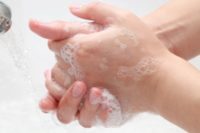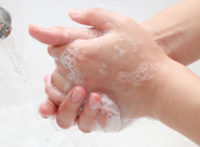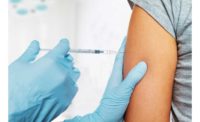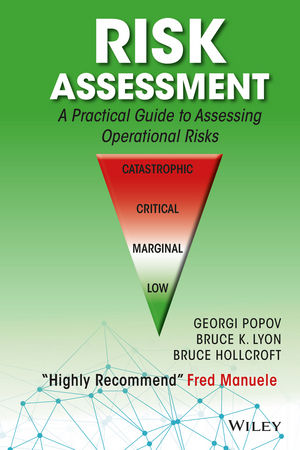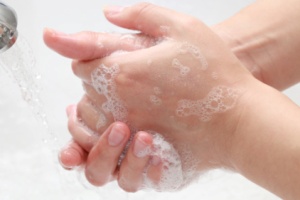 Is it important to wash your hands? Simply put, yes. Hand washing is the single most effective way to prevent the spread of infections. You can spread certain "germs" (a general term for microbes like viruses and bacteria) casually in some workplaces, universal precautions should be followed when workers are exposed to blood and certain other body fluids.
Is it important to wash your hands? Simply put, yes. Hand washing is the single most effective way to prevent the spread of infections. You can spread certain "germs" (a general term for microbes like viruses and bacteria) casually in some workplaces, universal precautions should be followed when workers are exposed to blood and certain other body fluids.
When should I wash my hands?
Different situations where people can pick up "germs" include:
- When hands are visibly soiled.
- After using the washroom (includes changing diapers).
- After blowing your nose or after sneezing in your hands.
- Before and after eating, handling food, drinking or smoking.
- After touching raw meat, poultry, or fish.
- After handling garbage.
- Visiting or caring for sick people.
- Handling pets, animals or animal waste.
Ensuring that employees wash their hands properly after using the washroom is very important in reducing disease transmission of stomach "flus" (which really is not a "flu" or influenza) and other gastrointestinal infections. Using soap and lathering up is very important (rinsing hands in water only is not as effective). Use comfortably warm, running water where possible for comfort. Hands should be washed for a minimum of 15 seconds - longer if the hands are visibly soiled. To help people (especially children) wash long enough, one option may be to sing a short song such as "Happy Birthday" or "A, B, C" twice. The idea of surgeons scrubbing for an operation (as on TV) is very similar.
How do I properly wash my hands?
For effective hand washing, follow these steps:
- Remove any rings or other jewelry.
- Use water and wet your hands thoroughly.
- Use soap (1-3 mL) and lather very well.
- Scrub your hands, between your fingers, wrists, and forearms with soap for 15 seconds.
- Scrub under your nails.
- Rinse thoroughly.
- Dry your hands with a single use towel or air dryer.
- Turn off the taps/faucets with a paper towel.
- Protect your hands from touching dirty surfaces as you leave the bathroom.
- Other tips include:
- Cover cuts with bandages and wear gloves for added protection (cuts are very vulnerable to infections).
- Artificial nails and chipped nail polish have been associated with an increase in the number of bacteria on the fingernails. Be sure to clean the nails properly.
- Keep your hands away from your eyes, nose or mouth.
- Assume that contact with any human body fluids is infectious.
- Liquid soap in disposable containers is best. If using reusable containers, they should be washed and dried before refilling. If using a bar of soap, be sure to set it on a rack that allows water to drain or use small bars that can be changed frequently.
What about antibacterial soaps and waterless hand scrubs?
While it is true that regular soap and water does not actually kill microorganisms (they create a slippery surface that allows the organisms to "slide off"), antibacterial soaps are typically considered to be "overkill" for most purposes. The exception may be in a hospital where special situations are present (e.g., before invasive procedures, when caring for severely immuno-compromised patients, critical care areas, intensive care nurseries, etc.). Antibacterial agents should be chosen carefully based on their active ingredients and characteristics, and when persistent antimicrobial activity on the hands is desired.
When there is no soap or water available, one alternative is to use waterless hand scrubs. Some of these products are made of ethyl alcohol mixed with emollients (skin softeners) and other agents. They are often available as a rinse, or on wipes or towelettes. They can be used by paramedics, home care attendants, or other mobile workers where hand washing facilities are not available. However, these agents are not effective when the hands are heavily contaminated with dirt, blood, or other organic materials. In addition, waterless hand scrubs may have a drying effect on the skin and may have odours which may be irritating to some users. Hand sanitizers may not be effective when your hands are visibly dirty or greasy.

